Travel Figures Show Social Class Inequality Widening In Iran
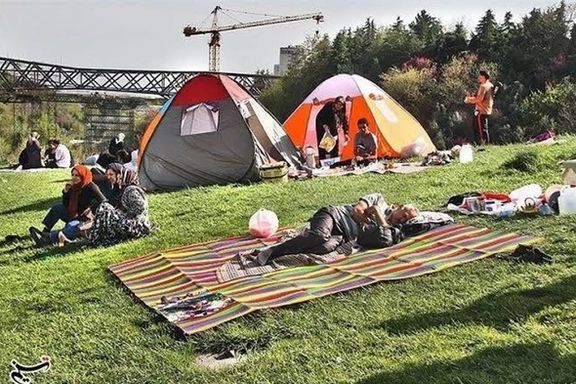
Figures from the recent Nowruz holidays reflect a widening class gap between Iran’s rich and poor.

Figures from the recent Nowruz holidays reflect a widening class gap between Iran’s rich and poor.
Travelling to other cities, historic sites and seaside resorts has been very popular Nowruz activity for Iranians since the advent of modern transportation in mid-20th century.
While four- and five-star hotels remained busy during the holiday season, two- and three-star properties were vastly under their usual seasonal average.
The chairman of the Iranian Air Travel and Tourism Offices, Hormatollah Rafiei, admitted the trend reflects the economic woes of the country as it battles through some of its worst financial crises of recent history with rising costs of living and declining incomes.
"A large part of four and five-star hotels, which are more expensive, were fully booked, while two and three-star hotels, which are cheaper, remained empty,” he said this week, suggesting little impact of the crisis on the top echelons of the country's rich.
It suggests a trend of those in the middle-income brackets either not traveling or opting for more affordable options such as schools, pilgrimage centers, and municipal camps, he added.
Echoing the trend, Iran's hoteliers’ association announced a 70% drop in occupancy levels during the holidays.
While annual inflation hovers around 50 percent, prices for necessities such as food have risen much faster. Official figures published by Statistical Center of Iran show food prices rising by 70-100 percent in the past year.
As the national currency has halved in value since mid-2022, monthly salaries for ordinary people have dropped to less than $150.
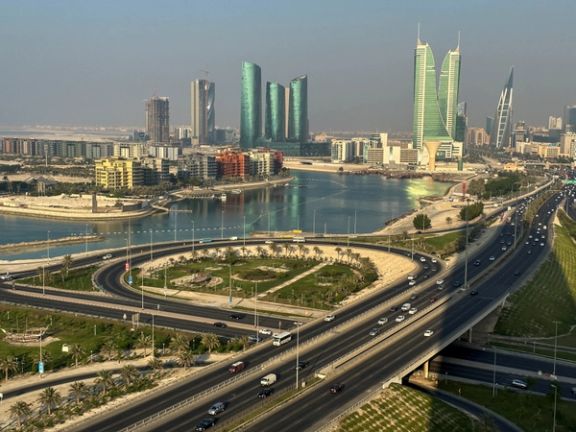
Qatar and Bahrain will resume their diplomatic ties, both Bahrain news agency (BNA) and the Qatari foreign ministry said Wednesday.
The move comes over two years after an Arab boycott of Qatar was lifted.
Saudi Arabia, the United Arab Emirates, Bahrain and Egypt in January 2021 ended a 3-1/2-year embargo of Qatar but all but Bahrain restored travel and trade links in 2021.
On Wednesday, the Bahraini-Qatari Follow-up Committee held its second meeting at the headquarters of the GCC General Secretariat in the Saudi capital where the decision was made, the two countries said in separate statements.
In January, Bahrain's crown prince spoke with Qatar's emir by telephone, in a sign the two Gulf states were moving towards repairing relations.
The row that led the quartet to cut all ties with Qatar in 2017 centered around its support for Islamist movements deemed a threat by Arab neighbors and its ties with Shi'ite Muslim power Iran and Turkey.
The four states also had their own disagreements with Qatar.
Regional heavyweight Saudi Arabia has led efforts to rebuild ties with Qatar and, along with Egypt, re-established diplomatic relations.
Bahrain, a Sunni Muslim-ruled monarchy with a restive Shi'ite population, has deep unease over Qatar's relations with Iran. Bahrain also has territorial disputes with Qatar.
Recent restoration of diplomatic ties between Saudi Arabia and Iran signaled a new policy by the leader of Persian Gulf Sunni Arab states for closer regional ties.
Reuters report
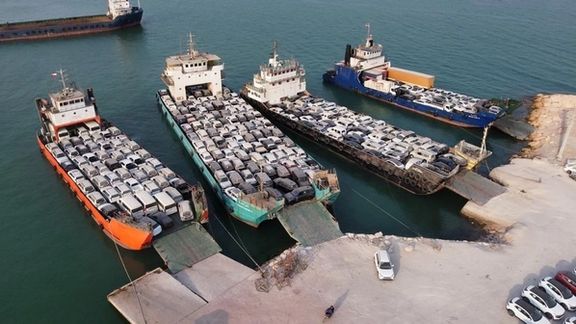
The Central Bank of Iran has blocked at least 96 trillion rials ($2 billion) in public's money in a government scheme for car pre-sales, feared as another scam.
The Islamic Republic’s Ministry of Industry, Mine and Trade announced early in March a scheme allowing people to deposit money to book the purchase of an imported car, but the list of cars and their models, the available number of cars, and even their final prices were not provided at the time.
The government promised people refunds if they opted out of buying the cars or if the number of available cars were fewer than the demand but after more than a month of waiting, people are demanding refunds, but the CBI is failing to uphold its side of the deal.
According to a report by Faraz Daily on Wednesday, the total amount of frozen money is 1.5 quadrillion rials ($3.12 billion), but the article only talks about 96 trillion rials of the prospective buyers’ money.
The scheme required those applying to opening an account containing at least five billion rials ($10,000).
The scheme involved several vague conditions such as not owning a car and as things fail to progress, many expect that like other government schemes, it was little more than a scam. In previous years, such schemes have ended with several well-connected people ending up with dozens or even hundreds of cars.
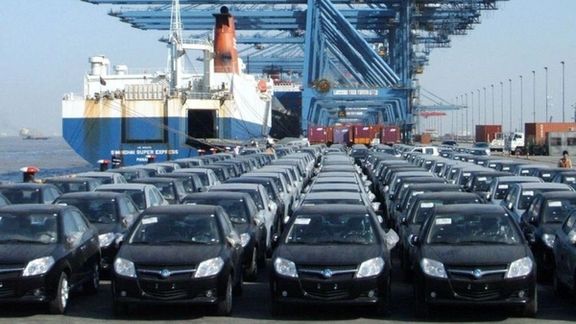
Amid public criticism and frustration over the lack of transparency about the process, the registration window closed after about a week, with over 120,000 people signing up for the plan. Finally, the names of 34,000 people were drawn, which means out of about 600 trillion rials (about $1.2 billion) of the entrants’ frozen money, only a small fraction of around 170 trillion rials ($340 million) was spent on the imported cars.
This plan was not the only scheme that the regime devised to collect people’s personal investments in the last days of the previous Iranian year – which ended on March 20. Over a week after the plan for the imported cars, the ministry announced a similar one for the pre-sale of domestically manufactured cars.
The number of cars was announced as about 500,000 and applicants were asked to block 1,000 billion rials ($2,000) to be considered for the draw. The final number of entries has not been announced but by March 19, more than 360,000 people had already registered, according to the ministry’s spokesman Omid Ghalibaf. During the past two weeks, a large number of people have been complaining on social media that despite their cancellation, the banks would not allow them to withdraw their money.
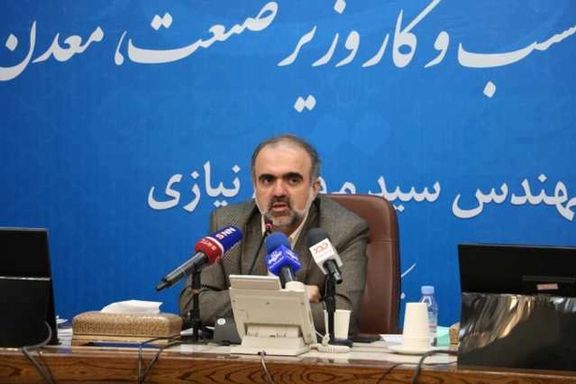
Deputy industry minister Mehdi Niazi says that the issue is communicated with the relevant banks and the regulatory body of the CBI. “Unfortunately, despite the correspondence and emphasis on the necessity of respecting people’s rights, banks refuse to release the blocked money,” he said, adding that banks blame a lack of action by the CBI to justify their move.
The prices of the cars have officially increased by 30 percent since the registration by the applicants, meaning that the participants are in for a huge loss, in an already dire economic time in Iran. A question that is circulating on social media is who will pocket the interest for the money blocked in the banks.
The Islamic Republic has a notoriously chaotic car market mired with monopolies – for manufacturing vehicles as well imports and exports – and affordability issues. Since the United States introduced ‘maximum pressure’ sanctions in 2018, threatening third parties dealing with the Iranian financial sector, Iran has struggled with imports, while European carmakers in joint projects have withdrawn. Iranian automakers are also quasi-governmental companies, benefitting from favorable borrowing and lack of competition. Some media in Iran have speculated that this vested interest might have a role in blocking approval for imports.
Earlier in April, Iranian Traffic Police said that more than 85,000 car accidents occurred during the Nowruz holidays, with about 900 people killed, one third of those, children. Between 2008 and 2018, 280,000 people died in road accidents, although there are no estimates of how many of these deaths were directly related to mechanical problems with domestic cars.
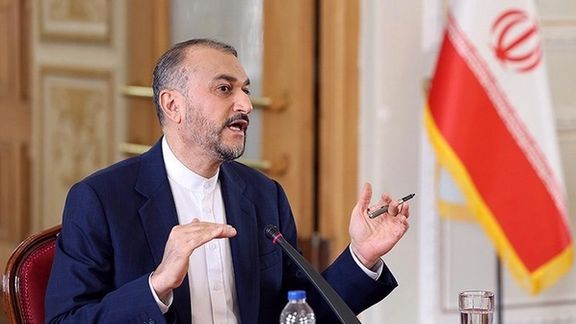
Iranian Foreign Minister Hossein Amir-Abdollahian and his Japanese counterpart Yoshimasa Hayashi have discussed bilateral relations as well as regional and international developments.
In a phone call on Wednesday, the two sides exchanged views on the development of bilateral cooperation in various fields, as well as the state of Iran’s nuclear talks with the West, Mehr news agency reported.
Amir-Abdollahian noted that Iran always considers diplomacy and negotiation as a way to resolve regional and global challenges.
Nuclear talks that began in April 2021 reached a deadlock last September, with the United States blaming Iran for unreasonable demands.
Regarding the war in Ukraine, he claimed the Islamic Republic is opposed to the war.
Iran has been supplying suicide drones and possibly other weapons to Russia, angering NATO countries.
Moscow began using the Kamikaze drones against Ukraine in early October, forcing Washington to finally say that the nuclear talks had reached an impasse.
For his part, the Japanese minister called ties between Tehran and Tokyo very important, expressing his country's stance on the process of the nuclear negotiations.
In the days leading up to Russia’s invasion of Ukraine in February 2022, negotiators in the nuclear talks were scrambling to reach the finish line, promising to successfully conclude a diplomatic process that had lasted eleven months.
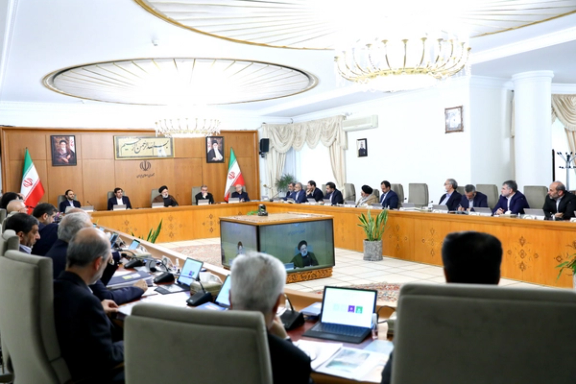
Iran's President Ebrahim Raisi Tuesday, finally responded to calls for reshuffling his economic team although the changes appear to be too little, too late.
Government spokesman Ali Bahadori Jahromi said on Tuesday that Davoud Manzour has replaced Massoud Mirkazemi as the head of the Planning and Budget Organization (PBO), Jalal Sadatnejad has been removed from his post as Agriculture Minister.
Bahadori said that the changes are meant to solve the people's problems. However, he further explained that former (PBO) Chief Mirkazemi was replaced because he suffered from heart disease adding that he will serve as an adviser to the government.
The new PBO Chief Manzour has a controversial track record as the former head of Iran's Tax Organization where he threatened reporters when they asked why IRGC entities such as the Khatam ol-Anbia did not pay taxes. Manzour was subsequently criticized by reporters for not knowing enough about the structure of the organization he headed and for exerting pressure on whistle-blowers instead of paying attention to what they said.
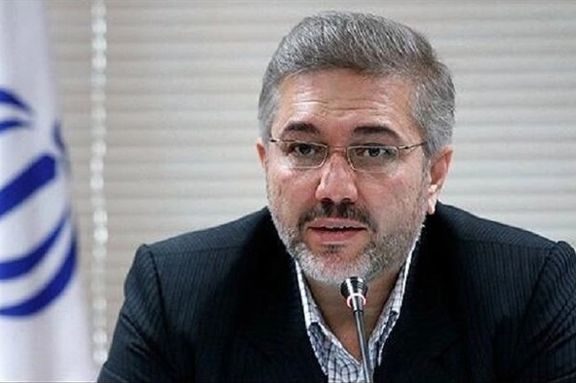
Like most of Raisi's aides, Manzour is also an Imam Sadeq University alumnus, an institution run by hardliners, where he studied economics. All Imam Sadeq students are chosen from among regime loyalists who are then promoted after graduation. Manzour has been heading various government financial offices since 2006.
Conservative commentator Mohammad Mohajeri, one of Raisi's critics who has been calling for changes in the government's economic team for more than 18 months now, once again criticized the president for choosing his aides from among a small circle. He made the comment shortly before the changes were announced but his criticism is still valid.
Mohajeri said in an interview with Entekhab news website that one of the problems of the Raisi administration is that Iran's political, economic and cultural elites are not willing to work with it. He further charged that the 7,000-page economic plan Raisi was boasting about before his election was blank "but he even does not have the right individuals to implement what was written on those blank papers," he said.
He said, a review of the output of all the state-owned news publications shows that very few experts have spoken about the government's plan because they do not wish to belittle themselves and stoop to the level of the government. Mohajeri further doubted that Raisi would introduce better individuals to replace the current officials because he does not have better individuals around him. Raisi has no choice other than working with inefficient individuals who have studied at the Imam Sadeq University.
He suggested that Raisi should reach out for help to elites outside the government, especially to recruit qualified people to replace his incapable economic team.
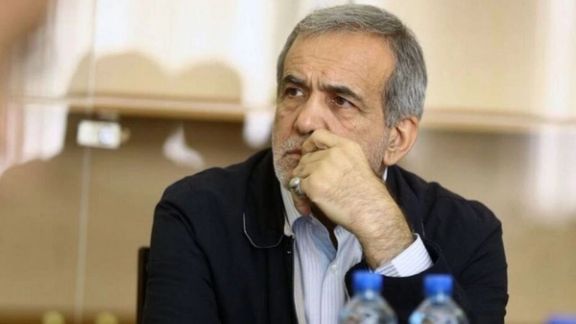
Meanwhile, lawmaker Massoud Pezeshkian criticized the administration for repeatedly blaming the previous government. Pezeshkian told ILNA that Raisi cannot reach any good result by insisting to work with non-experts.
Welcoming changes in the government, Pezeshkian pointed out that both the officials and the policies should change as both are problematic. Most of the officials in the government lack the right expertise and experience and are not motivated for what they are expected to do.
In another development, Iranian economist Hossein Raghfar pointed out in an interview with reformist Jamaran News website that one of the reasons why Raisi cannot address a problem such as inflation is that it serves the interests of Iranian oligarchs. They have cornered lucrative trade rights and they can more easily secure scarce hard currencies when the Iranian rial has lost most of its value.
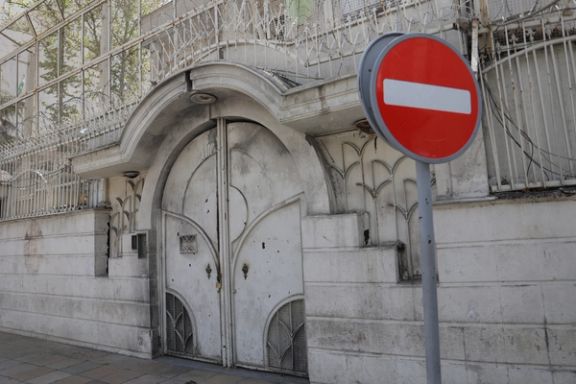
A delegation from Iran has arrived in Saudi Arabia to prepare the ground for reopening Iran's embassy in Riyadh and its consulate general in Jeddah.
Director General of Iran's Foreign Ministry Office for Persian Gulf Affairs, Alireza Enayati, said the resumption of flights to and from Iran are also on the agenda of the discussions.
The visit follows a delegation to Tehran this week as Saudi officials also assessed the technicalities of reopening its embassy and consulate.
It has been a busy week for the two countries as they repair diplomatic relations following a detente brokered by Beijing in March after seven years of hostility.
The agreement the two countries reached in March with Chinese mediation foresaw full diplomatic relations being restored in two months. So far contacts and discussions seem to continue on track.
The Council of Ministers of Saudi Arabia on Tuesday reviewed the latest developments related to the implementation of the agreement between Riyadh and Tehran to resume diplomatic relations.
Foreign ministers of Iran and Saudi Arabia met in Beijing on Thursday for the first formal gathering of their top diplomats in more than seven years.